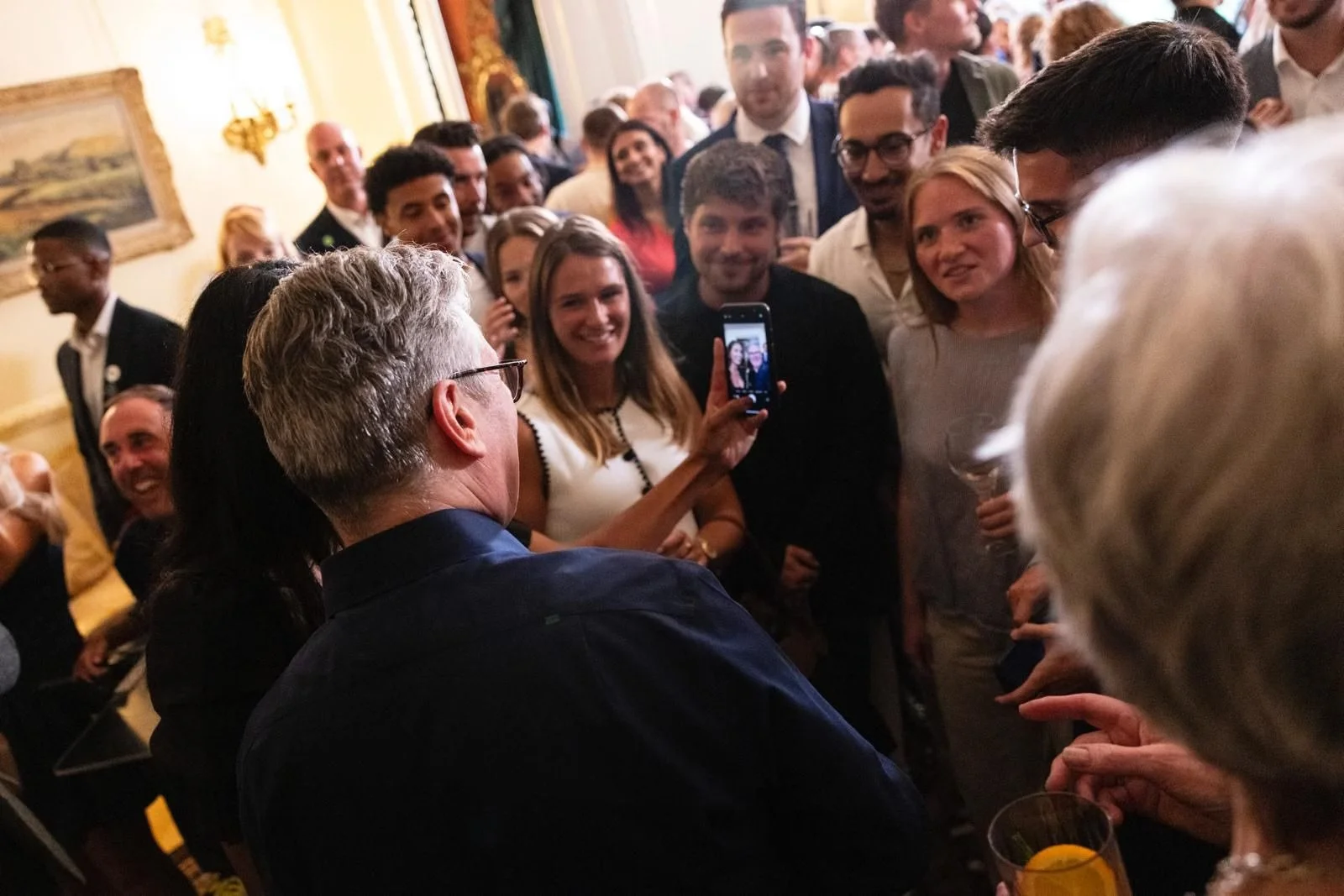Why Downing Street is so keen to influence the influencers
‘Got invited to Downing Street last week (as you do)’ influencer Jade Beason told her 67,000 Instagram followers.
If ever there was a sign that the media landscape has shifted, that social channels hold more power than ever, then this was it. A summer drinks reception at the home of the Prime Minister for the best UK content creators.
Once this would have been the type of event for newspaper editors, columnists and newsreaders. Now it’s those who make reels and TikToks about all aspects of life from personal finance to homeware, gardening to exercise that the politicians are keen to make friends with.
The shift from traditional media to creators
This gathering of 100 creators in the Downing Street garden has opened up a new level of recognition for the influence of the influencers.
There is now representation for creators and influencers in Parliament, with an all-party parliamentary group established to champion them as drivers of the UK economy. Oxford Economics 2025 impact report estimated that the ‘creator economy’ supports 45,000 jobs and contributes £2.2billion to the economy.
The word ‘influencer’ was once shorthand for a certain type of reality show contest keen to endorse any product in their 15 minutes of Insta fame. However, times have changed and now content creators are recognised as builders of brands and savvy business people in their own right.
The rise and recognition of the creator economy
Co-chair of the creators lobbying group is Feryal Clark, MP for Enfield North. She said that social influencers are ‘trailblazers of a new creative revolution’.
She added: “This cross-party forum will tear down the barriers that stifle talent, championing creators as pioneers of our time, and making sure Britain leads the world as the ultimate home of creativity, innovation and ambition.”
At Democracy, finding the right people of influence for our client partners is key to protecting their reputations, connecting them with new audiences and amplifying their products and services. It’s a bedrock of the modern marketing mix and delivers measurable return campaign after campaign.
Whether for a consumer brand such as food or drink or homeware, or a B2B proposition, there are voices and personalities that influence others out there on social.
Why creators are so important to brands
British content creator Lilly Sabri is a fitness and lifestyle influencer with nearly 900,000 Instagram followers. She is closely involved in the all-party parliamentary group and sees this as a big step toward influencer being seen as a ‘real’ job.
Historically, YouTubers had to get significantly more eyeballs on their videos than TV for the same ad money.
"For many years people have questioned whether being a content creator is a real job, and whether you can actually build a sustainable career from it," says Lilly.
"I started as a content creator on YouTube eight years ago, launched my first business around three years ago and my second shortly after.”
Brandon B, who has 16 million YouTube subscribers, and is known for his short-form visual effects videos, said the creator industry needs government support to ‘break through to the next level’.
"We're at a scale where it feels like we really do need that government stamp of approval and a voice in Parliament to help us get through.
"It's about supporting our business growth - everything from being able to look at taking on capital or loans from banks and almost just having the infrastructure around us."
So if connecting with content creators is on your marketing plan for 2026, get in touch now to see how we can help super-charge you.


